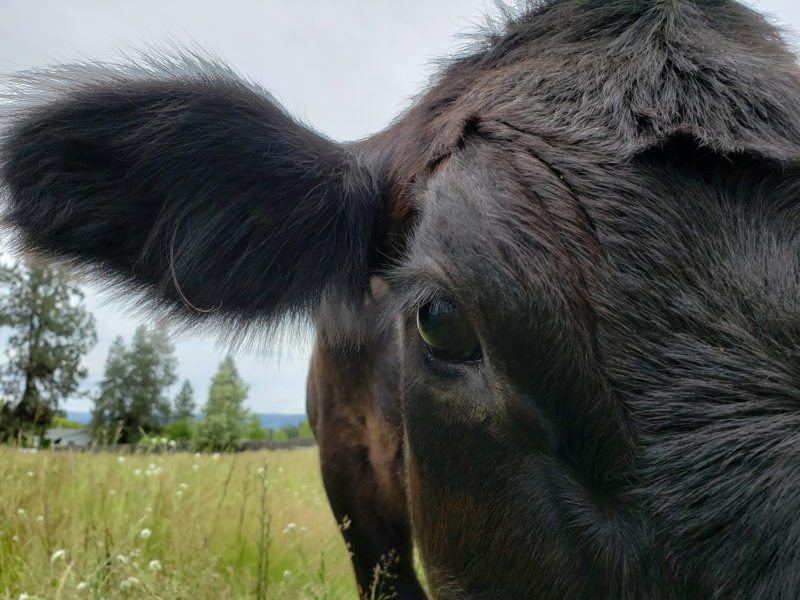The rollout of the province’s new meat licensing regime October 1 will also mean stepped-up inspections of on-farm abattoirs.
In addition to an annual inspection by the province, Farmgate Plus licensees (formerly Class D and E abattoirs) that slaughter cattle will also undergo inspection by the Canadian Food Inspection Agency.
The inspections aim to preserve the negligible risk status for Bovine Spongiform Encephalopathy (BSE) Canada received in May. The inspections will ensure that producers meet the control requirements under the Health of Animals Act and Regulations for specified risk material. The work is backed by a federal investment of $162.6 million over five years to support CFIA’s work.
But the federal inspections don’t sit well with some small producers.
“It’s great to say that we have this new licencing system, but it all falls back on the producer. There are some big gaps,” says Port Alberni cattle and sheep producer and Alberni Farmers Institute president Lisa Aylard. “The government comes back saying we need security for our exports because of BSE. The CFIA money is in support of global trade, nothing domestic. So where is the support system for our local businesses?”
CFIA says inspections will include an interview and a review of documents prior to inspection while the inspection itself will assess slaughter, processing, handling of specified risk material (SRM) and record-keeping.
The inspections will coincide with scheduled slaughter dates; if no slaughter is planned for this fall, the inspection will occur at the first slaughter date following. CFIA asks that licensees provide a slaughter scheduled as soon as possible, “even if no slaughter is planned.” In future, slaughter schedules must be provided before the first week of months January, April, July and October.
“The whole idea of getting the D licence was to give producers the ability to choose when they could use it. To provide flexibility,” says Aylard, noting that slaughter is just on thing small producers do. Having the ability to change schedules on the fly is important.
“Quite often we look after our own water so if you have a blow out of a waterline and you were planning on doing a slaughter, all of a sudden (the water) becomes a priority and you have to postpone (slaughter),” she says. “More regulations impede [the] ability to conduct farm business as needed on producers’ timelines.”


 RegenBC conference emphasizes context
RegenBC conference emphasizes context